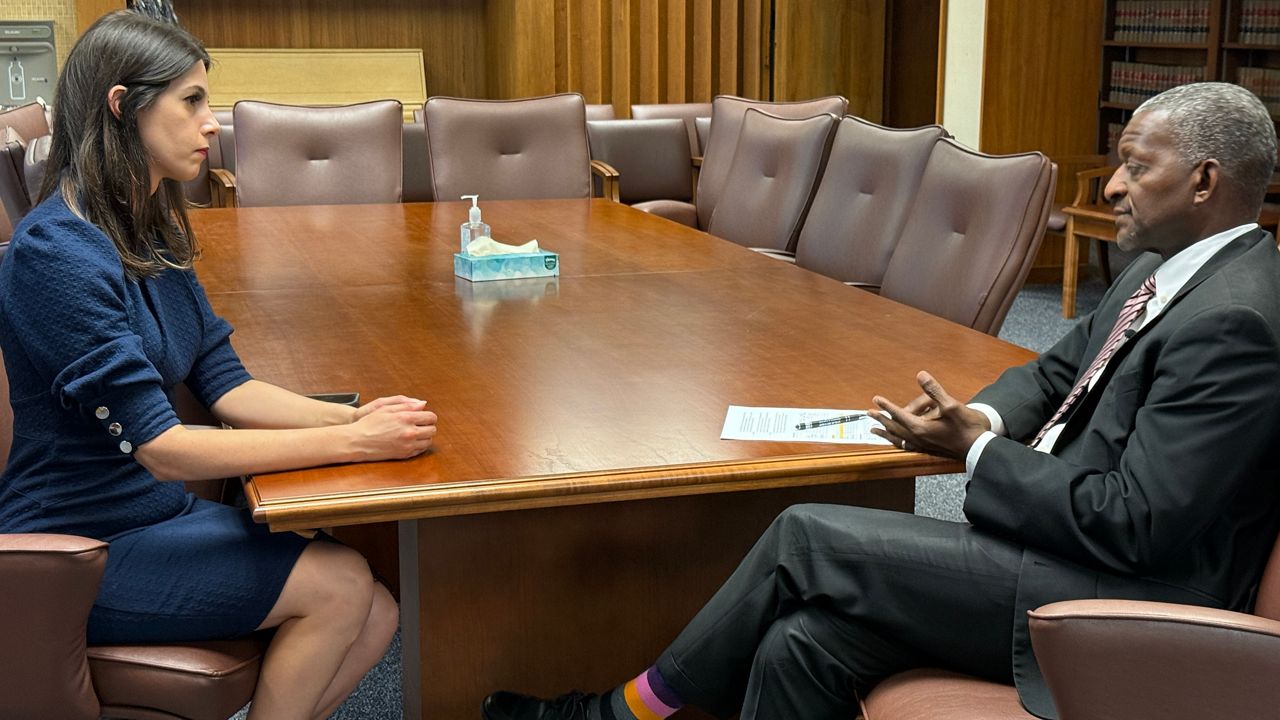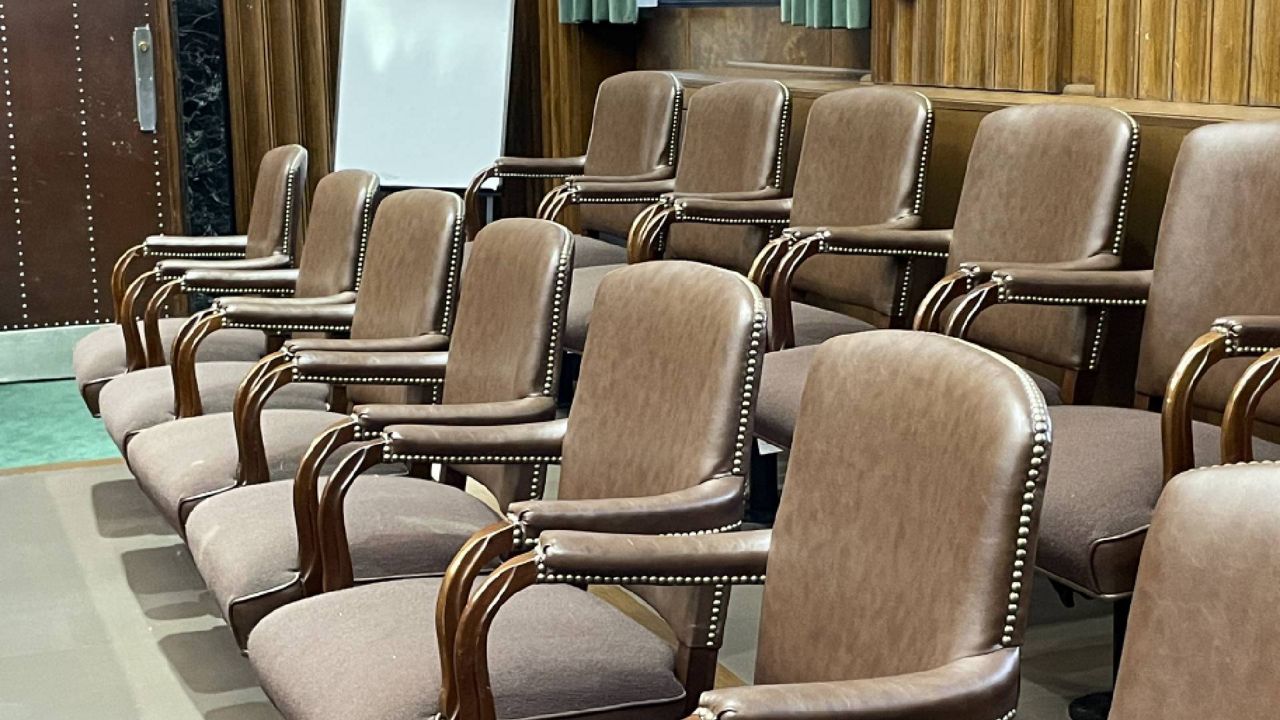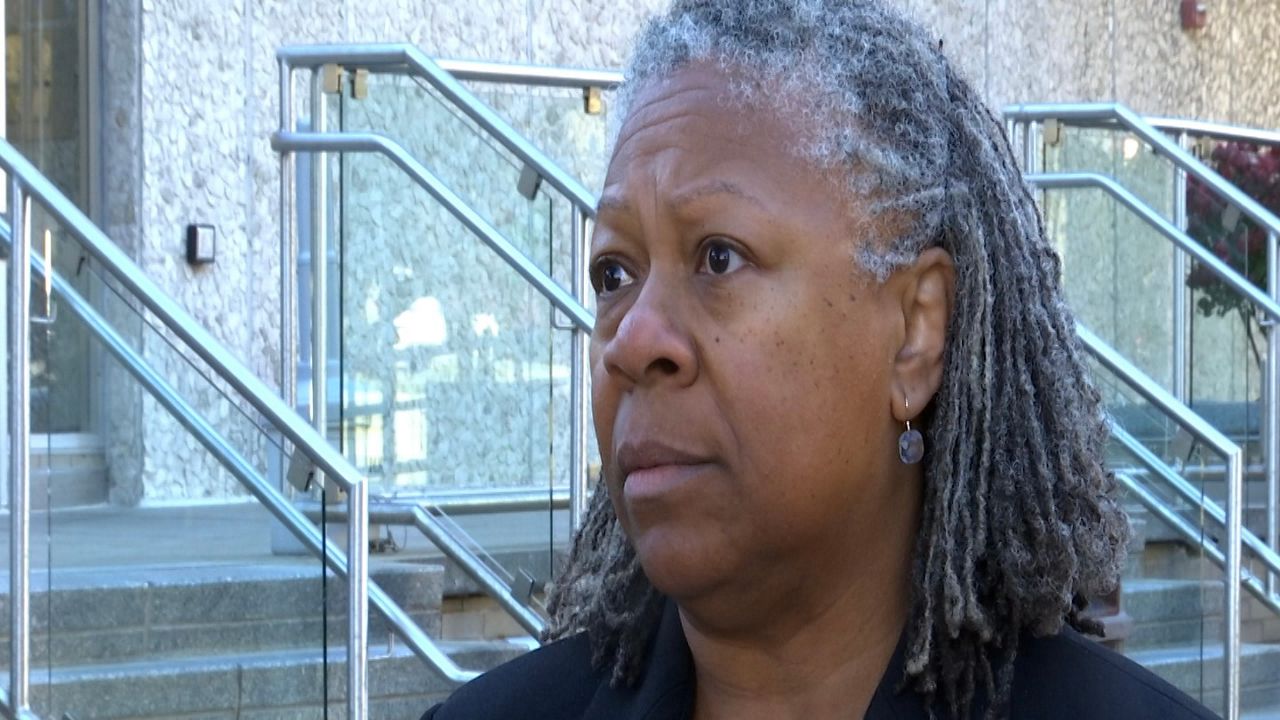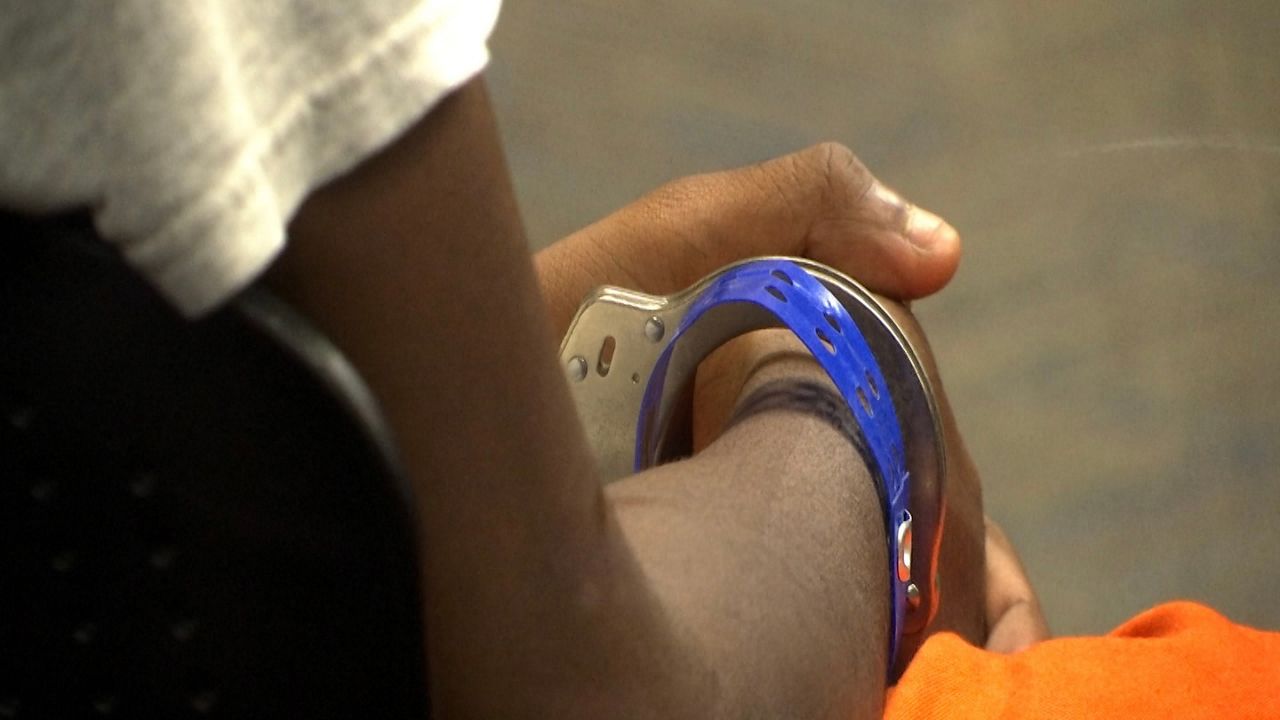MILWAUKEE — The Sixth Amendment of the United States Constitution guarantees any defendant the right to counsel. If a defendant cannot afford an attorney, one will be provided for them.
Despite this clause being written into what is arguably the most powerful document in American history, as it stands today, it is by no means a guarantee.
A shortage of public defenders is plaguing the nation — Wisconsin is no exception.
Hundreds waiting for a public defender
State Public Defender Jennifer Bias was appointed by Gov. Tony Evers on June 13, 2024.
“The shortage of public defenders in our state started about 10 to 15 years ago in the northern parts of our state,” she said. “Post-COVID, it spread south.”
On Oct. 30, Spectrum News covered preliminary court in Milwaukee County from 8:30 a.m. to 10:30 a.m. Of the 25 cases heard in that time slot, 10 were adjourned due to the state public defender’s office not yet appointing counsel for the accused.
Of those 10 defendants, all of them waited, or have been waiting for state-appointed counsel for more than a month since the complaint against them was originally filed.
“Based on the SPD’s (Wisconsin State Public Defender’s Office) failure to appoint counsel within the prescribed time limits, the matter is adjourned for cause,” Commissioner Barry Phillips said on multiple occasions.
Chief Judge Carl Ashley oversees Milwaukee County’s first judicial district. He said currently, there are more than 300 people waiting more than 30 days for a public defender.

“It’s mind-boggling that number exists,” he said. “That number goes up and down because there are a number of attorneys, a number of people coming through the system, so it’s rotating and not fixed.”
State statute 970.03 is Wisconsin’s preliminary examination statute. It mandates the following:
“The preliminary examination shall be commenced within 20 days after the initial appearance of the defendant if the defendant has been released from custody or within 10 days if the defendant is in custody and bail has been fixed in excess of $500. On stipulation of the parties or on motion and for cause, the court may extend such time.”
What’s causing the shortage?
Fewer experienced lawyers, more felony cases, high workload and low pay are the primary reasons for this shortage of public defenders, according to Bias.
“We’ve had, it seems, record numbers of retirements of lawyers in the public defender over the last 10 to 15 years,” she said.
According to State Public Defender Spokesperson Adam Plotkin, the turnover rate skyrocketed during the pandemic. It increased from around 10-11% to more than 20%. Though that rate has slowed, it still hovers around 13% and has not recovered to pre-pandemic levels.
The Wisconsin Policy Forum released a comprehensive report in April 2023 examining this issue and others.
“COVID exacerbated that to no end because experienced lawyers decided that this is the time I’m going to retire,” Ashley said.
“We want our lawyers to be ethical,” Bias said. “Following up on the need to train, give people experience, be mentored, have someone by their side to co-chair a case, or sit with them during trial cases so they know what they’re doing.”
In terms of public defender workload, Plotkin said it’s common for one to put in an 80-hour work week. Ashley echoed that it’s a recipe for burnout.
“What we’re doing is asking those lawyers who are already working to do more, to go faster, hopefully not at the detriment of their clients,” Ashley said. “Instead of scheduling one or two cases for trial, they may have three or four cases for trial on a given day.”
In terms of cases, if a public defender is handling only misdemeanor cases, they would handle 400 per year. If they took on only felony cases, they would handle 200 per year.

Bias made it clear that those numbers are a floor and not a ceiling. Plotkin echoed the same, saying most staff attorneys operate at about 120-125% of that caseload.
“That’s not how the work is arranged,” Bias said. “Our staff handle all that they can ethically and competently handle.”
Public defenders also handle a variety of case types beyond felony and misdemeanor.
The American Bar Association released new national standards a year ago, examining acceptable workload for public defenders. The state public defender’s office is in the process of adapting those standards for Wisconsin. Part of that process will be determining how many more lawyers and staff members are needed to support caseload.
Pay for public defenders as well as for assistant district attorneys has been an issue for years. In 2023, the state legislature did approve a pay increase for both groups, bumping the starting hourly rate from $27.24 to $36. The state public defender is asking for another increase in the upcoming budget.
Another ask facing the legislature will be to change the law to decrease the felony caseload.
“We’ve proposed this in our upcoming budget, for example, with disorderly conduct charges, with bail-jumping charges,” Bias said. “We would like the legislature to consider decriminalizing, redefining, moving some of those types of charges away from criminal process, which would mean that the individuals don’t need lawyers.”
In Milwaukee County, data from Chief Judge Ashley’s office showed 5,770 felony cases filed in 2023. That is the highest number since 2018 and just over 1,000 more than 2022. Ashley said the county is on pace to meet or exceed that number this year.
“Those are the types of cases you cannot put young, inexperienced lawyers on,” he said. “With the backlog we already had and the increasing number of cases, it’s difficult to try to address the backlog when we’re getting more serious cases filed.”
Milwaukee County currently has a backlog of 1,684 cases, as of October. Ashley said the county accounts for 13.55% of the state’s felony backlog, which is a 2% increase compared to 2023. He said there are roughly 180 people waiting in jail for homicide cases.
“Our managing attorney for the public defender’s office is pulling his hair out in distress,” Ashley said. “Their whole office is distressed, as are all of us about not being able to have attorneys represent folks in a more timely fashion.”
The problem is so acute that on June 6, Chief Justice Annette Kingsland Ziegler announced the creation of the Attorney Retention & Recruitment Committee to address Wisconsin’s attorney shortage.
Though Bias said the average length of time that defendants wait for a public defender is constantly changing, she maintains that the majority are assigned representation within two weeks.

“We’re talking about the inability to appoint a smaller number, significantly smaller than the number of cases our staff is able to handle across the state,” she said. “Anytime someone is waiting longer than two weeks and they’re in custody, it is a significant problem to us.”
What makes this more complicated are conflict of interest cases that public defenders, under Supreme Court rule, cannot represent. Those include co-defendant cases in which two or more people are accused of committing a crime together. The public defender can only represent one person.
“We can only represent one individual in that case and then we have to find maybe three, four private bar lawyers to represent those other clients who qualify for public defender,” Bias said. “Those individuals sit in custody often, in some counties they are out of custody, but they will sit until an attorney is found who is willing to take the case, and that is significant.”
Spokesperson Plotkin said on average, 37-38% of clients who qualify for a public defender end up being represented by an attorney with the private bar.
“We’ve added almost 100 private bar who have signed up to be our partners and take overflow cases from the SPD law firm,” Bias said.
A quest for solutions
The question remains, what are the solutions to mitigating this shortage that appears to have no immediate end?
Bias touted the work already being done in the public defender’s office to recruit new lawyers and train them.
“We attend conferences,” she said. “We have good retention at this time. Compared to last year, or the year before at this time, we have not lost the same number of staff.”
“We want to focus on lawyers who are coming out of law school and lawyers outside of the State of Wisconsin. It’s the only way we’re going to be able to capture the number we need,” she continued.
Ashley said he believes quality of life for those working in this field needs to be addressed.
“It has to be a career that respects quality of life,” he said. “The attorneys, both from the defense side and the prosecuting side, are working extraordinary hours at the expense of their personal lives.”
“We could give some opportunities for tuition to be picked up, more money, more opportunities for time with your family; we have to incentivize the opportunity to do this good work in a way that we haven’t.”



